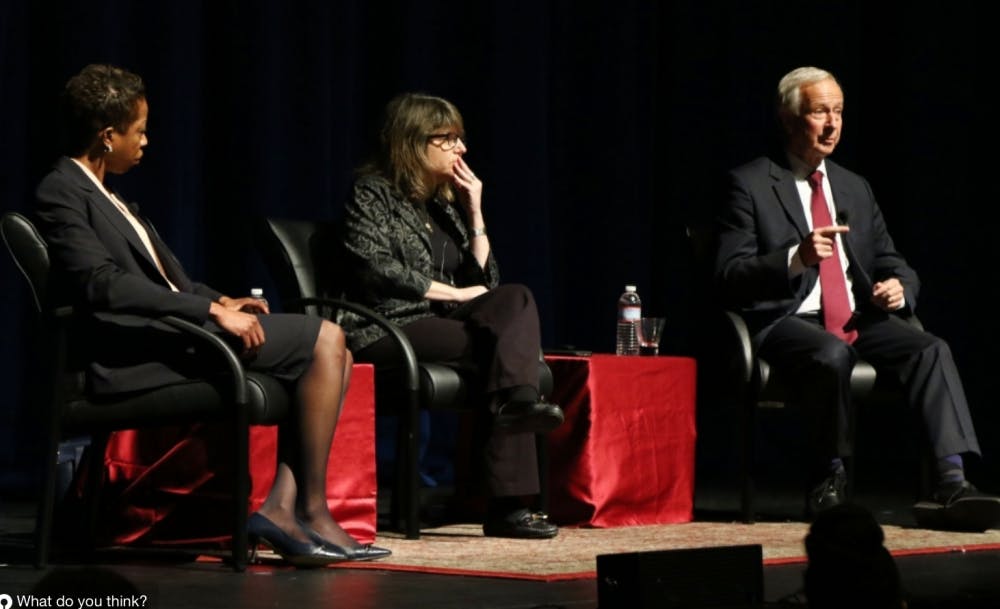President Richard Brodhead announced Tuesday the structure of a steering committee that will implement suggestions from last year’s report from the Task Force on Bias and Hate Issues.
The steering committee will be chaired by Larry Moneta, vice president for student affairs, and will study the task force’s recommendations and begin putting them into practice. Brodhead’s email noted that one such recommendation has already had an effect on Duke policy.
A new clause in the University’s student conduct policy this year states that violations motivated by “race, color, religion, national origin, disability, veteran status, sexual orientation, gender identity, sex, genetic information or age” will be aggravating factors leading to stricter punishments.
“After considering the recommendations over the summer, we are now putting them into practice—including making changes to the student conduct policy and procedures, strengthening student support services and facilitating transparent communication,” Brodhead wrote in the email.
Also included in the steering committee are Ben Reese, vice president for institutional equity, Emily Klein, professor of earth sciences, as well as Michael Schoenfeld, vice president for public affairs and government relations.
“We are implementing the recommendations of the task force report,” Moneta said in the release. “Some of this builds on work we’ve done over the past three years. The aggravating factor clause, we were able to do quickly; other actions are going to be ongoing.”
In the release, Reese indicated the committee hoped to preserve intellectual on-campus debate, but that there is a difference between opposing ideas and “offensive speech that targets particular groups or individuals.”
Assisting the committee will be an advisory committee of faculty, staff and students plus four working groups. These groups will focus on specific issues, the release said, including how to collect data on bias and hate incidents, how to improve communication, how to reduce bias in the curriculum and developing campus-wide policy.
“We encourage you to learn more and participate in this conversation so that we can move together toward creating the University we all want,” Brodhead wrote in the email.
Get The Chronicle straight to your inbox
Signup for our weekly newsletter. Cancel at any time.

